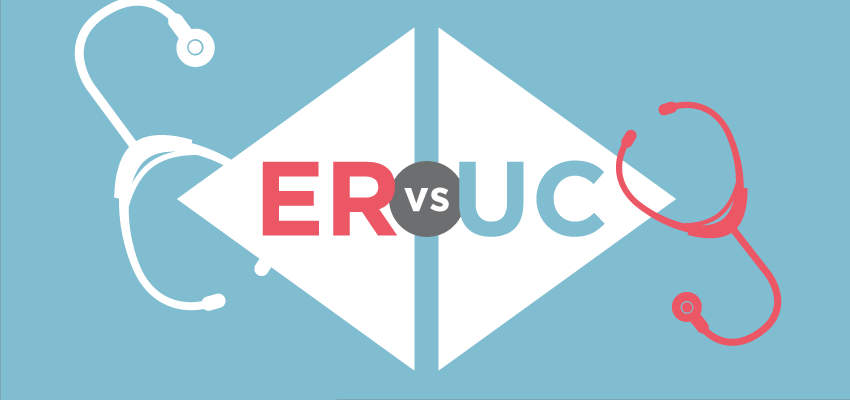
With so many clinics popping up on every corner – from urgent care walk-in clinics to stand-alone emergencies to traditional hospital ERs – it’s hard to know which you should choose when you’re in need.
There are two key differences in urgent care clinics versus emergency rooms:
- Emergency rooms treat any medical situation – including trauma and life-threatening medical emergencies.
- Urgent Care clinics are equipped to handle most non-life-threatening illnesses or injuries, and often have most or all of the services you will find at your general practitioner or family doctor’s office.
When should you go to the emergency room?
It’s important to note that the emergency room is just what it says: it is for real emergencies. They are almost always open 24 hours a day, 7 days a week, 365 days per year.
They are equipped for bullet wounds, stabbings, burns, surgeries and so much more. You should opt for an emergency room or call 911 if you have any of the following:
- allergic reactions to food, animal or bug bites
- broken bones
- chest pain
- nonstop vomiting
- nonstop bleeding
- severe shortness of breath, trouble breathing
- deep cuts or other types of wounds
- weakness or pain in a leg or arm
- Any type of head injury
- If you’re unconscious, someone should bring you to the emergency room.
Although a trip to the emergency room is often unavoidable, it doesn’t come without a HUGE bill. Going to the emergency room costs a lot more – at least three times as much – than going to an Urgent Care clinic.
People who went to the emergency room in 2014 spent an average of two hours there, about 30 minutes waiting to be seen and another 90 minutes for treatment. If your injury is not serious and you want to save time and money, an urgent care clinic is an ideal alternative to the ER.
Also consider that most emergency rooms are triaged, which means that the most seriously injured – i.e. a gunshot victim or heart attack – will be treated before your broken finger. If there’s an unusually high number of severely ill or injured people on any given night, your wait in an emergency room will be much longer.
When should you go to Urgent Care?
Many Urgent Care clinics are open after business hours and on weekends, sometimes even holidays. A good Urgent Care clinic will have great doctors and nurses with ready access to x-rays and a lab
If you need to see a doctor and can’t wait for an appointment with your general practitioner, you should consider an urgent care clinic for the following ailments:.
- Cold and flu
- coughs and or sore throat
- high fever
- vomiting, diarrhea, stomach pain
- Some cuts and heavy scrapes
- broken bones
- minor wounds and burns
- Sports-related injuries
- and more
Call your local Urgent Care Clinic or stop by today if you have any of the
